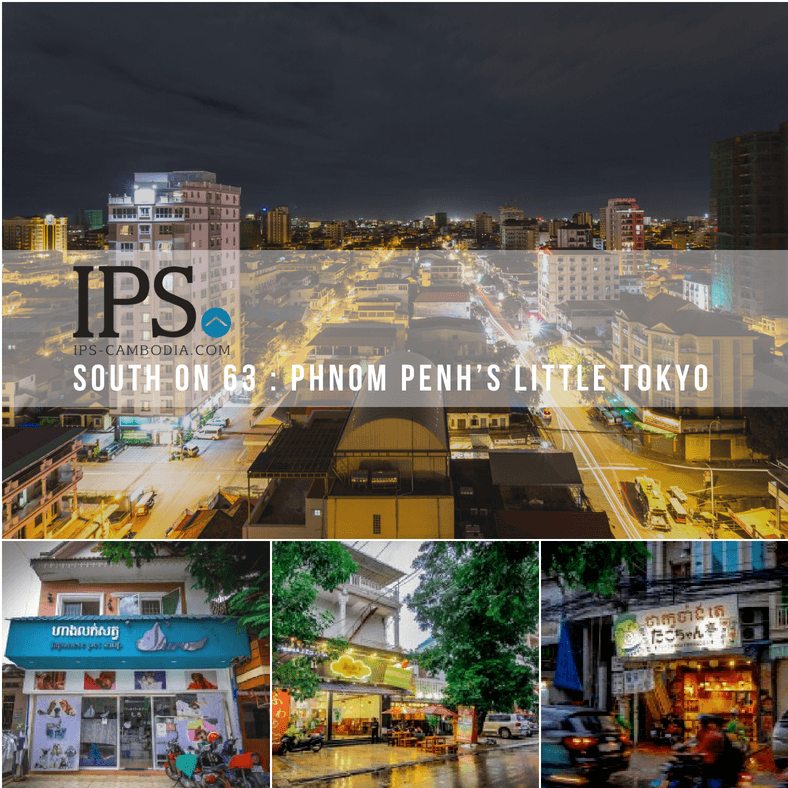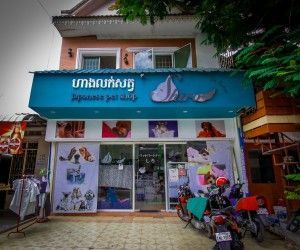If you head south of Mao Tse Tung on street 63 you will leave the bustle of BKK1 and enter the more tranquil section of Tonle Bassac. This niche western part of Tonle Bassac is dominated by government buildings, impossibly large villas, embassies and tree-lined streets. It is also emerging as Phnom Penh’s version of Little Tokyo.
The section of Street 63 (Trasak Paem) between street 422 and 462 is sometimes referred to as ‘Kizuna’ street, which is a Japanese word meaning bonds or connections. The Japanization of this area can largely be attributed to its proximity to the Embassy of Japan to the east and also the Japanese Organization HUGS (Humanity United by Giving Support), which is proactively investing in Japanese business in the area. The result is an eclectic mix of Japanese bars, restaurants, beauty parlours, clothing shops and even a pet hotel.
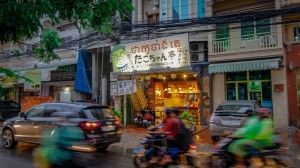
For those who don’t know the area, it is definitely worth a visit to taste some of the best Japanese cuisines in Phnom Penh. The newest restaurant on the strip, Garaku, dishes up fresh seafood whilst guests can watch nightly performances on a stage in the middle of a pond. For more casual dining head further south to the longer established Takoyaki Yakisoba and wash down some crispy, gooey octopus dumplings with a glass of Phnom Penh beer or iced plum wine. There is also a range of wooden hued Sake bars serving well-priced Sake and whisky.
The formations of these microcosms of development can have a rapid and dramatic impact on the real estate market in a particular area. Shop fronts, which were attracting only a small amount of local foot traffic, will start to see an influx of ‘destination visitors’ who travel from outside the area and tend to spend more. As a result, you start to see residential landlords adapt to cater for the new commercial market as they chase the increase in rental income that the change brings.
Bordering ‘little Tokyo’ to the east Norodom Boulevard and to the west Monivong Boulevard are both well known commercial roads that have enjoyed strong rental incomes and property values over the years, making it difficult for small start-ups to place their business operations here, however the gentrification of streets such as Street 63 provides opportunities for thoughtful business owners to enter the Phnom Penh market at lower rental costs than the main thoroughfares.
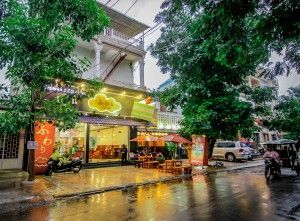 IPS’s Valuations Team estimates shopfront rental prices in the area to be around: $9 per m2, which is a significant saving when compared to the average shopfront rental on Monivong ($14 per m2).
IPS’s Valuations Team estimates shopfront rental prices in the area to be around: $9 per m2, which is a significant saving when compared to the average shopfront rental on Monivong ($14 per m2).
For property investors and business owners, the area is benefiting from this increased diversity. It still remains a relatively quiet area compared to BKK1, but it is benefiting from many of the positive impacts of development from its northern neighbour. With such a large space taken up by the Senate, the Ministry of Interior and a number of embassies, there is a limited supply of land to build upon. There is also a captive market of people who work in the area who have much higher than average incomes. It is no coincidence that the flagship Audi store opened on the corner of St. 422 and Monivong.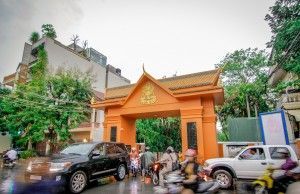
Whether you are looking for a quiet place to live that has all the convenience of BKK1 without the construction noise, or if you are looking for a promising area for investment, or just somewhere new to get your Saki fix, Phnom Penh’s little Tokyo is an exciting area to check out.
Lachlan Lee is the Phnom Penh Branch Manager of IPS-Cambodia, premier real estate company in Cambodia and a lover of Japanese food.

